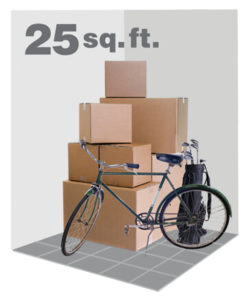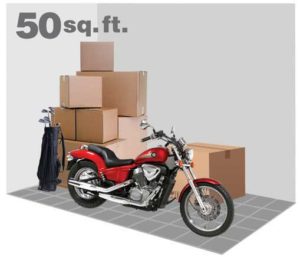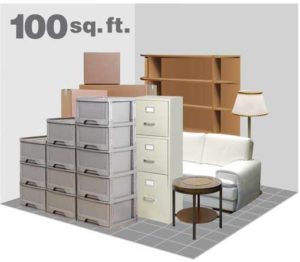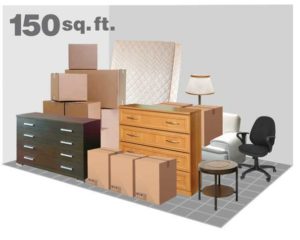
Using Storage Units to Hold Inventory For Home-Based Businesses
October 20, 2019 | Storage Tips
According to the latest research from Incfile.com, there are 38 million home-based businesses in the United States. And perhaps more fascinating is that a new home-based business is started every 12 seconds! Not many households can accommodate all the inventory it takes to run successful at-home small businesses such as those selling online. As the items pile up, space in the home decreases, making it much more cramped inside.
Luckily, there is a great solution: Rent a storage unit to hold all the inventory in a neat, organized manner. In order to do so effectively, there are a few key things to consider. To get started, use this guide to learn all about using storage units to hold inventory for an at-home small business.
When to Rent a Storage Unit for an At-Home Business
Although it seems obvious that a storage unit is in order once inventory overwhelms the home office, there is a bit more to it than that. Unless the household finances can take a loss, the at-home business should be bringing in enough profits to cover the storage unit costs. Otherwise, the monthly storage fees could put the business in the red.
Weigh the need for space with the financial health of the at-home business to see when the timing is right in getting a storage unit. The only exception is if the company is based around selling fragile or collectible items that could get damaged in the home. If that is the case, then getting a storage unit as soon as possible is likely the best move.
Types of Storage Units for Small Business Inventory
Storage companies offer many different types and sizes of storage units. Depending on their facility layout, they may have storage units with indoor and outdoor access points. For example, exterior drive-up storage units are a popular choice for expedient access and competitive leasing rates.
Interior, climate-controlled storage units are a must-have for many types of home-based businesses including pharmaceutical representatives, legal and medical professionals, and antique dealers.
Furthermore, storage units come in a wide range of sizes to suit all personal and business needs. Standard storage unit sizes include:
5 feet by five feet (5’x5’)
5 feet by ten feet (5×10)
10 feet by ten feet (10×10)
10 feet by 15 feet (10×15)
Despite all the options, you may need some help determining the right-sized unit for specific storage needs. Ask your local storage company if they allow customers to upsize or downsize their units with proper notice. For peace of mind, go with a storage company that offers state-of-the-art security and an on-site storage team that successfully serves the needs of other business owners in the area.
Top Considerations in Selecting the Right Storage Option
In order to find the best storage unit for their inventory items, business owners must take some time to consider several key areas. Move through the following areas to narrow down the options and pinpoint the best storage unit possible.
Size
Keeping a storage unit organized is easier if you plan in advance. The storage unit needs to hold all the current inventory items, plus whatever will be added in the future. Also, it needs to have enough room to place storage shelves that keep the inventory off the floor and organized. Around the storage shelves and inventory, business owners should have enough room to move around freely and access their items.
To find out how much space you might need, take measurements of the current inventory load and make predictions on future needs. Then, add several feet of space onto those measurements for shelves and walking room to find the ideal storage unit size.
Climate Control
Climate-controlled storage units keep the temperature and humidity at a steady level, protecting all the items inside. These storage units are a must for any items prone to damage due to the heat, humidity and severe temperature swings.
These types of businesses can benefit from climate-controlled storage:
- Retail and Creative Businesses
- Real Estate and Staging Businesses
- Pharmaceutical Sales Representatives
- Legal and Medical Professionals
- Self Employed Freelancers
Climate control storage units remove the variables in keeping inventory in good condition, which helps prevent losses. So, they are often a good choice for home-based business owners with the budget to cover the extra cost, no matter what they are storing.
Security
Although storage units require insurance coverage in most states if anything goes awry, security must remain paramount to avoid disrupting the business operations. Any losses from theft could seriously derail home-based small businesses, so tour your local storage facilities and ask them to demonstrate how they make security a top priority.
Here are some examples of security features to look for at your local storage provider:
- Gated access points
- Secured doors
- Bright lighting
- Video monitoring
- On-site management team
- Well-lit premises
If in doubt, ask your local storage company about their commitment to securing your items and keeping them safe from theft.
Accessibility
While storage units for at-home business inventory need to be secure, they also need to remain accessible whenever items are needed. Business owners should be able to jet down to the storage facility at their convenience to retrieve anything due to go out that day. Although many are open 24-hours a day to accommodate different schedules, not all are, so take the time to check.
By paying close attention to all these areas, small business owners can locate the perfect storage unit for their inventory.
Getting Setup with a Storage Unit for an At-Home Small Business
After finding the ideal storage unit for the inventory items, all that is left to do is go down to the management office to rent your unit. The on-site management team will process the storage unit request and provide all the information needed to get started. They usually require payment at that time to acquire access to the unit.
The lease will likely continue until the tenant elects to stop using the storage unit in favor of another option. When that time arrives, business owners will need to notify management and clean out the storage unit in full to avoid any extra charges.
When business owners take the time to set up a storage unit for their inventory, they can keep their homes clear of clutter and promote the success of their enterprise. Their efforts may pay off in better inventory control and an ability to net more sales as a result.
Guest blogger Ryan Schwartz is the Broker and Owner of Florida Realty & Co. After starting and running multiple business ventures at home, Ryan understands the importance of maintaining an organized and professional home office.








